Aditya Subramanian
InteractRank: Personalized Web-Scale Search Pre-Ranking with Cross Interaction Features
Apr 09, 2025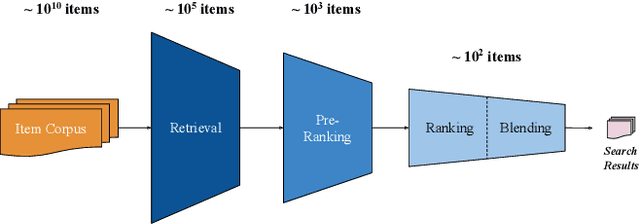

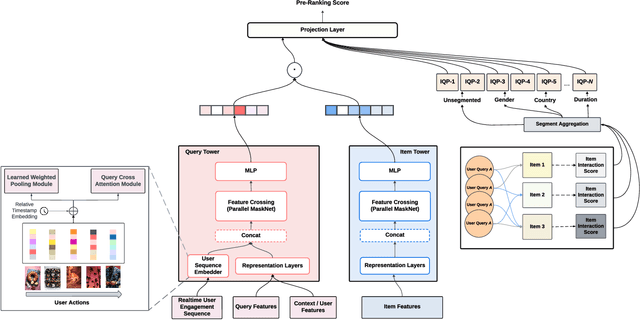

Abstract:Modern search systems use a multi-stage architecture to deliver personalized results efficiently. Key stages include retrieval, pre-ranking, full ranking, and blending, which refine billions of items to top selections. The pre-ranking stage, vital for scoring and filtering hundreds of thousands of items down to a few thousand, typically relies on two tower models due to their computational efficiency, despite often lacking in capturing complex interactions. While query-item cross interaction features are paramount for full ranking, integrating them into pre-ranking models presents efficiency-related challenges. In this paper, we introduce InteractRank, a novel two tower pre-ranking model with robust cross interaction features used at Pinterest. By incorporating historical user engagement-based query-item interactions in the scoring function along with the two tower dot product, InteractRank significantly boosts pre-ranking performance with minimal latency and computation costs. In real-world A/B experiments at Pinterest, InteractRank improves the online engagement metric by 6.5% over a BM25 baseline and by 3.7% over a vanilla two tower baseline. We also highlight other components of InteractRank, like real-time user-sequence modeling, and analyze their contributions through offline ablation studies. The code for InteractRank is available at https://github.com/pinterest/atg-research/tree/main/InteractRank.
A Smart System for Selection of Optimal Product Images in E-Commerce
Nov 12, 2018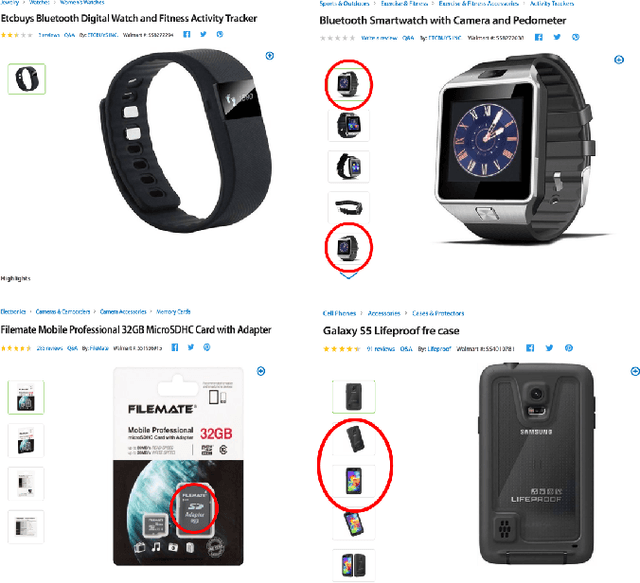
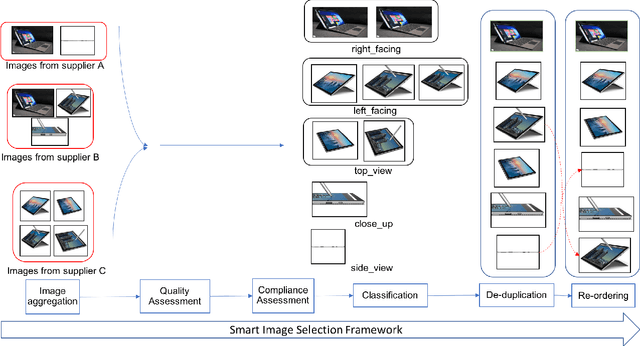
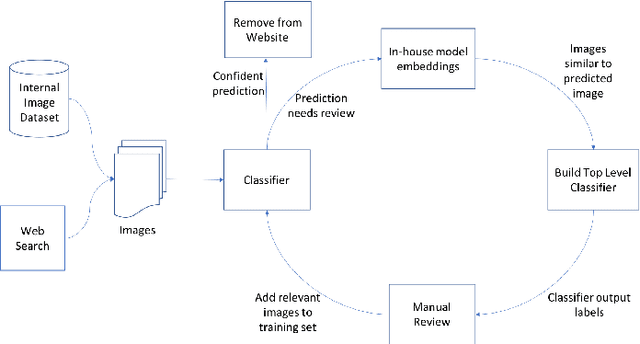
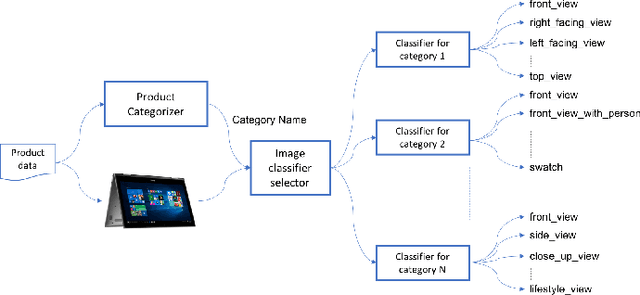
Abstract:In e-commerce, content quality of the product catalog plays a key role in delivering a satisfactory experience to the customers. In particular, visual content such as product images influences customers' engagement and purchase decisions. With the rapid growth of e-commerce and the advent of artificial intelligence, traditional content management systems are giving way to automated scalable systems. In this paper, we present a machine learning driven visual content management system for extremely large e-commerce catalogs. For a given product, the system aggregates images from various suppliers, understands and analyzes them to produce a superior image set with optimal image count and quality, and arranges them in an order tailored to the demands of the customers. The system makes use of an array of technologies, ranging from deep learning to traditional computer vision, at different stages of analysis. In this paper, we outline how the system works and discuss the unique challenges related to applying machine learning techniques to real-world data from e-commerce domain. We emphasize how we tune state-of-the-art image classification techniques to develop solutions custom made for a massive, diverse, and constantly evolving product catalog. We also provide the details of how we measure the system's impact on various customer engagement metrics.
Deep Recurrent Neural Networks for Product Attribute Extraction in eCommerce
Mar 29, 2018


Abstract:Extracting accurate attribute qualities from product titles is a vital component in delivering eCommerce customers with a rewarding online shopping experience via an enriched faceted search. We demonstrate the potential of Deep Recurrent Networks in this domain, primarily models such as Bidirectional LSTMs and Bidirectional LSTM-CRF with or without an attention mechanism. These have improved overall F1 scores, as compared to the previous benchmarks (More et al.) by at least 0.0391, showcasing an overall precision of 97.94%, recall of 94.12% and the F1 score of 0.9599. This has made us achieve a significant coverage of important facets or attributes of products which not only shows the efficacy of deep recurrent models over previous machine learning benchmarks but also greatly enhances the overall customer experience while shopping online.
 Add to Chrome
Add to Chrome Add to Firefox
Add to Firefox Add to Edge
Add to Edge